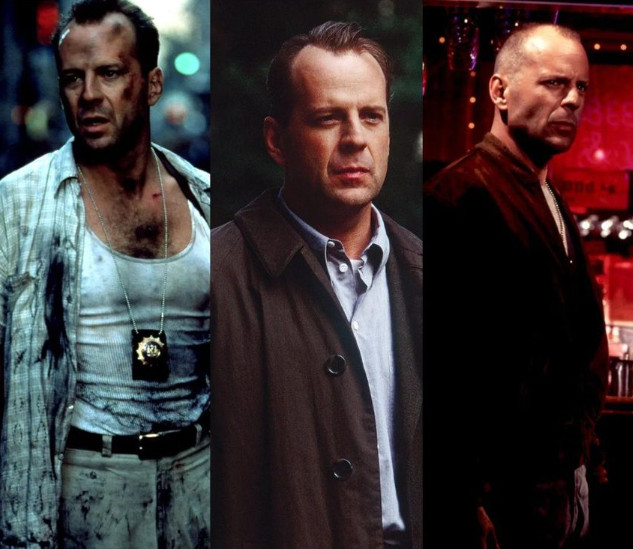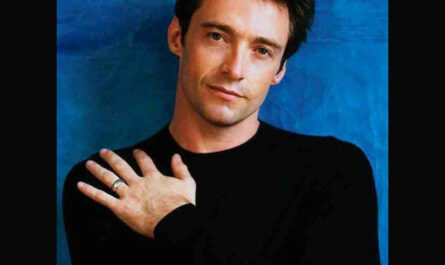Bruce Willis, an actor renowned for his versatility and iconic portrayals, has carved out a distinguished career spanning decades. Beyond the surface of his action-packed blockbusters lies a tapestry of social commentary interwoven into his diverse roles. From the gritty realism of the Die Hard franchise to the existential introspection of films like “12 Monkeys,” Willis’s performances serve as a mirror to the complexities of the human experience and the pressing social issues of our time. In this comprehensive exploration, we unravel the layers of social commentary embedded within Willis’s filmography, shedding light on the profound insights and thought-provoking themes that define his work.
Individualism vs. System: The Iconic Legacy of Die Hard
The Die Hard franchise stands as a testament to Bruce Willis’s enduring legacy as an action hero and a symbol of rugged individualism in the face of overwhelming odds. At the heart of these films lies the timeless struggle between a lone individual and a formidable, bureaucratic system. As John McClane, the wisecracking NYPD cop thrust into impossible situations, Willis embodies the quintessential underdog who takes on villainous organizations with courage and resourcefulness.
Throughout the series, audiences are drawn to McClane’s relatable humanity and his unwavering determination to defy the odds stacked against him. In a world where powerful institutions often seem indifferent to the plight of the individual, McClane’s tenacity strikes a chord with viewers who may feel disenfranchised or marginalized by the systems that govern their lives. The Die Hard franchise serves as a rallying cry for individual agency and resilience in the face of adversity, resonating with audiences across generations.
Trauma and Redemption: Exploring the Human Condition
Bruce Willis’s filmography is replete with portrayals of characters grappling with trauma and seeking redemption in a world fraught with violence and despair. In “In Country” (1989), Willis delivers a poignant performance as Emmett Smith, a Vietnam War veteran haunted by memories of combat and struggling to find his place in post-war America. Through Emmett’s journey of self-discovery and healing, the film explores the psychological scars of war and the enduring legacy of trauma on individuals and communities.
Similarly, in “12 Monkeys” (1995), Willis portrays James Cole, a convict sent back in time to prevent a global pandemic. As Cole navigates the murky waters of a dystopian future and confronts the specter of his own mortality, the film delves into themes of existential angst, free will, and the search for meaning in a chaotic world. Willis’s nuanced portrayal of Cole’s inner turmoil and quest for redemption elevates the film beyond its sci-fi trappings, offering a profound meditation on the human condition and the enduring power of hope.
Technology and Humanity: A Cautionary Tale for the Digital Age
In films like “The Fifth Element” (1997) and “Surrogates” (2009), Bruce Willis explores the intersection of technology and humanity, raising important questions about the ethical implications of our increasingly interconnected world. In “The Fifth Element,” Willis portrays Korben Dallas, a jaded ex-soldier thrust into a battle to save humanity from destruction. As Dallas grapples with the complexities of a futuristic society teetering on the brink of annihilation, the film serves as a cautionary tale about the consequences of unchecked technological advancement and the fragility of human existence.
Similarly, in “Surrogates,” Willis lends his voice to the character of Tom Greer, a detective investigating a series of murders in a world where people live vicariously through robotic avatars. Through Greer’s journey of self-discovery and disillusionment, the film explores themes of identity, authenticity, and the erosion of human connection in an age of virtual reality. Willis’s portrayal of Greer serves as a stark reminder of the dangers of sacrificing our humanity for the sake of technological progress, urging audiences to consider the ethical implications of our reliance on machines.
Conclusion: Bruce Willis’s filmography is a testament to his prowess as an actor and his commitment to exploring the complexities of the human condition through his diverse roles. From the adrenaline-fueled thrills of the Die Hard franchise to the existential introspection of films like “12 Monkeys,” Willis’s performances offer a compelling blend of action, drama, and social commentary that resonates with audiences around the world. As we continue to unravel the layers of meaning embedded within his work, may we be inspired to reflect on the pressing social issues of our time and strive for a more compassionate and equitable society.



